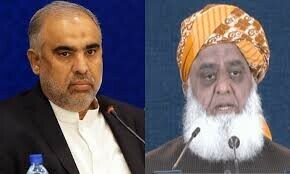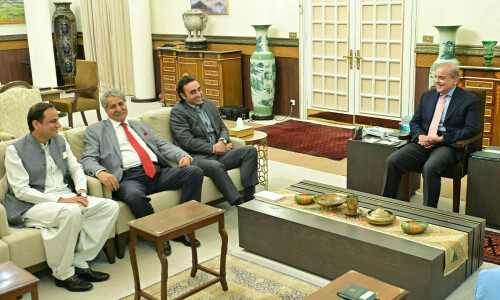ISLAMABAD, April 10: No funds have so far been contributed by donor countries for a programme launched jointly by the United Nations and Pakistan for flood-affected people of Sindh and Balochistan.
The Early Recovery Framework programme was launched in February this year and it sought $440m for millions of people marooned by last year’s floods, the United Nations’ Office for the Coordination of Humanitarian Assistance said in its report on Tuesday.
The UNOCHA said that “needs outlined in the Early Recovery Framework across all clusters remained unmet”. It has offered the international donor community it could help facilitate field trips for donors to flood-affected areas for more information about the situation in flood-hit areas.
It is for the first time that the UN has come out with such an offer which shows that the donor community has either no spare funds due to economic recession or it is reluctant to provide funds because of the issue of governance, credibility or transparency.
The UN Rapid Response Plan Floods 2011 launched in September last year seeking $356 million was 48 per cent funded. In view of the poor response, the plan was abandoned and it was replaced with the Early Recovery Framework programme which sought restoration of livelihood, support for food security, basic social services, shelter, community infrastructure, health, nutrition, water and sanitation of the flood-hit people.
“Flood-affected areas in Sindh and Balochistan continue to face significant gaps in humanitarian help due to lack of funding for the ERF programme.”
Over 10,000 people are still unable to return to their areas in Sindh because of the presence of standing water or because their villages are still wet and muddy. As a result, many families who have returned to Mirpurkhas, Tharparkar and Umerkot districts have been still living in temporary shelters in or near their villages and require the ongoing relief, the report said.
With the next monsoon season less than five months away, building resilience of flood-affected communities is critical to restoring normalcy and minimising impact of future shocks. Of key importance is the upcoming Kharif planting season where timely funding is required to ensure farming families receive inputs to plant their crops at the right time.














































Dear visitor, the comments section is undergoing an overhaul and will return soon.